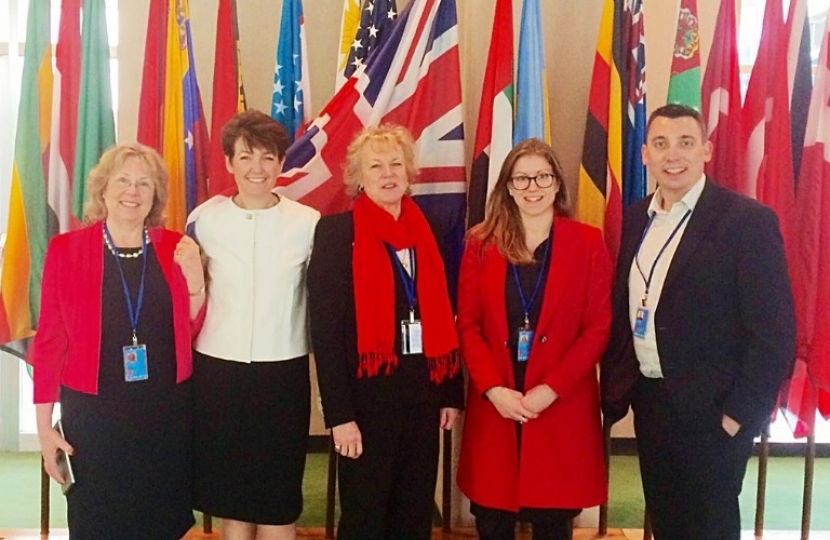
Last week, I was granted the privilege of being selected as part of a British delegation, to attend the Commission on the Status of Women (CSW); the second biggest United Nations gathering in the calendar. This coveted event works to evaluate measures to promote democracy and gender equality, identify the challenges and set new global targets towards the advancement of women around the world.
Only recently, events were held around the world to mark International Women’s Day. The events of this day brought home the value of and the challenges to women within our societies and institutions. Worldwide, women are around 50% of the population however in the UK business sector for instance, 20% of small and medium enterprises are led by women and only 8% of working age women are involved in the start-up of a business.
As a business woman by trade, these figures are disheartening, particularly as our own region places only 14% of women on the boards, of our top one hundred businesses. Whether gendered or not, a lack of women is bad for business as evidence published last year found that boards across the world lacking in gender diversity, lost out on £430 billion of investment returns. It is evidence like this, which goes to show why events like the CSW and the positive case for gender equality, are so important.
Sharing the conference with representatives - both men and women - from all over the world, allowed decision makers like myself to learn more about the experiences and perspectives of other countries. Women now represent more than 30% of delegates to 67 of the world’s political institutions, with notable changes like the first appointment of a female Speaker within the United Arab Emirates Federal National Council. Yet what was striking, was to learn that some of the greatest setbacks to the advancement of women have been seen across the European continent; as a victim of its own successes. It was therefore an honour, to be able to take part in diverse sessions involving parliamentarians from across the world and sessions with British students discussing democracy and women in science and engineering industries.
However, the conference also brought to light some of the severe challenges women around the world still face. Some of the most devastating accounts came from refugee women struggling to feed their families. Before last week, I would never have imagined a widow to be a young girl aged fourteen years old and left to raise her own child whilst ostracised by society. What remains clear is that women, amidst some of the most turbulent events around the world, continue to bear the brunt of some of the most appalling violence and alarming discrimination.
However, bringing forward my own experiences and as a parliamentarian, I was able to contribute towards the conference and help develop responses to the challenges to gender equality and democracy which – economically, politically and socially - affect both men and women alike.
Published in the EADT